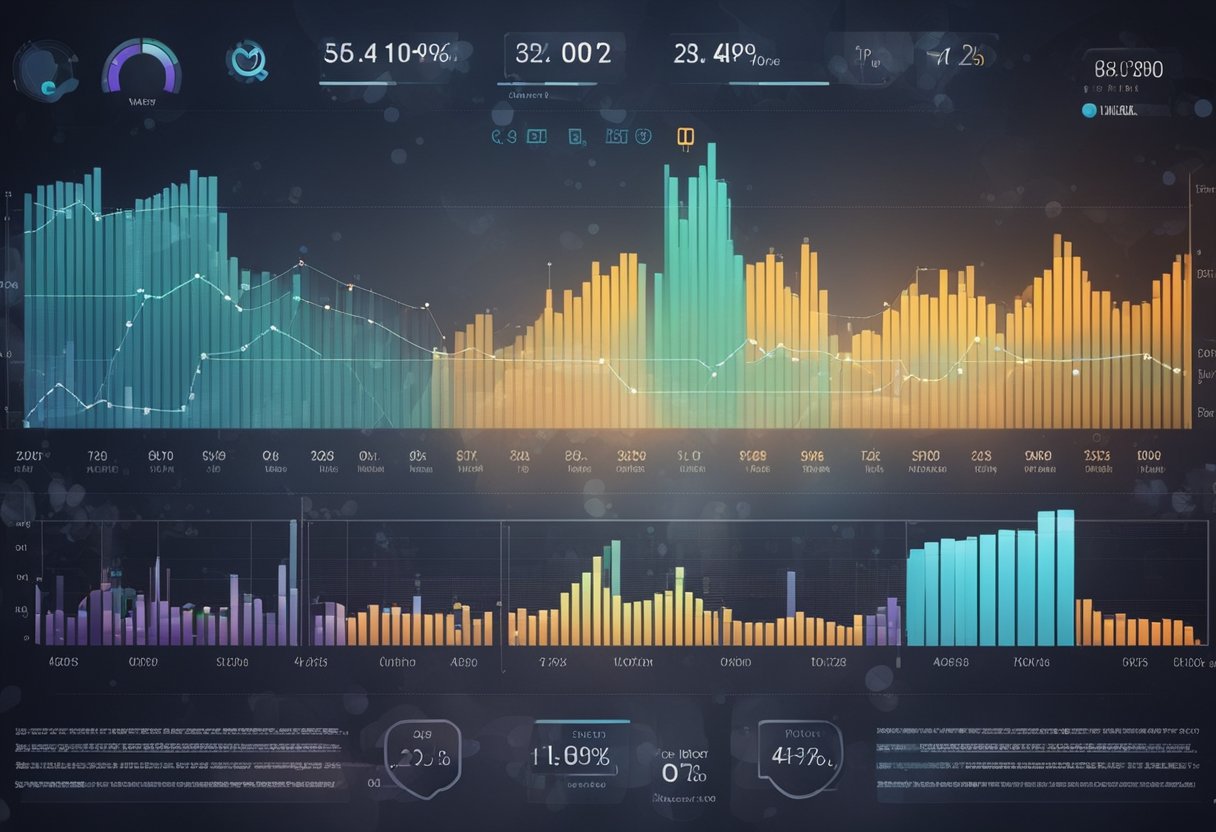Ethical Considerations in Post-Trade Data Usage: Best Practices for Financial Institutions
Ensure ethical considerations in post-trade data usage with our expert insights. Discover best practices for financial institutions to protect customer data.

Ethical considerations in post-trade data usage have become increasingly important in recent years as technology and artificial intelligence (AI) have grown, and regulations have become more stringent. These considerations mainly affect the financial industry, as post-trade data has become crucial for trading, risk management, and compliance.

The importance of ethics in post-trade data usage cannot be overstated. The use of data can have significant impacts on individuals and society as a whole, and it is essential to ensure that data is used in a fair, transparent, and accountable manner. Businesses and organizations must know the ethical challenges and risks associated with post-trade data usage and take steps to mitigate these risks.
The regulatory landscape surrounding post-trade data usage is complex and constantly evolving. Privacy and data protection laws, such as the General Data Protection Regulation (GDPR), significantly impact data collection, storage, and use. Technology also plays a crucial role in post-trade data usage, and it is essential to ensure that technology is used ethically and responsibly. TI, in particular, raises important ethical considerations, such as fairness and decision-making.
Key Takeaways
- Ethical considerations in post-trade data usage are becoming increasingly important in the financial industry.
- Regulations, privacy and data protection laws, and technology are crucial in post-trade data usage.
- Businesses and organizations must know the ethical challenges and risks associated with post-trade data usage and take steps to mitigate these risks.
The Importance of Ethics in Post-Trade Data Usage
Post-trade data refers to all the data generated after a trade has been executed, including trade confirmations, settlements, and trade reporting. TPost-trade data has become increasingly important in the financial industry, providing valuable insights into market trends and helping firms make better-informed investment decisions. However, using this data also raises important ethical considerations that must be addressed.
One of the most critical ethical considerations in post-trade data usage is trust. Market participants must be able to trust that their data is being used ethically and responsibly. This requires firms to be transparent about collecting, storing, and using post-trade data. It also requires firms to implement robust data security measures to protect against data breaches and unauthorized access.
Another important ethical consideration is the risks associated with post-trade data usage. Firms must avoid exposing themselves or their clients to unnecessary risks by misusing post-trade data. This requires firms to conduct thorough risk assessments and implement appropriate risk management strategies.
Standards and compliance are also critical ethical considerations in post-trade data usage. Firms must adhere to industry standards and regulations governing the use of post-trade data. This includes ensuring that data is anonymized and aggregated to protect the privacy and confidentiality of individuals and firms.
In summary, post-trade data provides valuable insights into market trends and helps firms make better-informed investment decisions. However, it also raises important ethical considerations that must be addressed. These include trust, risks, standards, and compliance. Firms must be transparent about collecting, storing, and using post-trade data, implementing robust data security measures, conducting thorough risk assessments, and adhering to industry standards and regulations.
Related Posts:
Regulatory Landscape

In recent years, there has been an increasing focus on the ethical considerations of post-trade data usage, particularly in light of the regulatory landscape. Regulations and privacy laws have been put in place to protect the privacy of individuals and ensure that data is being used ethically.
One of the most significant legislation in this area is the General Data Protection Regulation (GDPR). This regulation, enacted in May 2018, sets strict rules for collecting, using, and storing personal data.
Under the GDPR, companies are required to obtain explicit consent from individuals before collecting their data. They must also give individuals the right to access, modify, and delete their data. Failure to comply with the GDPR can result in significant fines.
In addition to the GDPR, companies must be aware of other regulations and privacy laws regarding post-trade data usage. For example, in the United States, the Securities and Exchange Commission (SEC) has established rules to ensure that companies use data fairly and ethically.
Overall, the regulatory landscape surrounding post-trade data usage is complex and constantly evolving. Companies must stay up-to-date with the latest regulations and privacy laws to ensure they use data ethically and legally.
Privacy and Data Protection
In post-trade data usage, privacy and data protection are critical ethical considerations. Personal information and data are often collected and used in post-trade activities. It is essential to ensure that this information is protected and used ethically.
Data protection refers to the legal and technical measures to safeguard personal data from unauthorized use or disclosure. Personal data includes any information that can be used to identify an individual, such as name, address, date of birth, and financial information. Data protection laws and regulations, such as the General Data Protection Regulation (GDPR) in the European Union and the California Consumer Privacy Act (CCPA) in the United States, aim to protect individuals' privacy rights by regulating personal data collection, use, and storage.
Data privacy refers to the individual's right to control how their data is collected, used, and shared. IRespecting individuals' privacy rights when collecting and using post-trade data. This includes obtaining proper consent, providing clear information about data collection and use, and ensuring that data is secure.
In addition to legal and regulatory requirements, ethical considerations are essential in data protection and privacy. Companies should strive to maintain transparency and accountability when handling personal data. This includes implementing appropriate security measures to protect data, limiting access to personal data to authorized personnel, and allowing data to be used only for legitimate purposes.
Privacy and data protection are essential ethical considerations in post-trade data usage. Companies must adhere to legal and regulatory requirements and maintain transparency and accountability when handling personal data.
Post-Trade Technology and Its Role

Technology has played a significant role in the post-trade data usage ecosystem. Artificial Intelligence (AI), algorithms, and models have made it easier to analyze large amounts quickly, providing previously impossible insights.
AI and machine learning algorithms detect patterns and anomalies in the data, identify trends, and make predictions. This technology has enabled financial institutions to automate their processes, reduce errors, and improve efficiency. However, ethical concerns, such as bias and discrimination, are associated with using AI and algorithms.
Models are used to simulate different scenarios and predict outcomes. They are used for risk management, portfolio optimization, and trade execution. However, optimization is flawed, and their predictions may not always be accurate. Therefore, it is essential to validate the models regularly and ensure that they are not biased.
Technology has also enabled the use of distributed ledger technology (DLT) or blockchain, which provides a transparent and secure way of recording transactions. DLT can reduce the risk of fraud and errors, increase efficiency, and lower costs. However, there are also concerns about the privacy and security of the data stored on the blockchain.
In conclusion, technology has revolutionized post-trade data usage, provirevolutionizedtunities and challenges. Financial institutions must use technology ethically and responsibly, considering the potential risks and benefits.
Ethical Challenges and Risks

Post-trade data usage raises several ethical challenges and risks that must be considered. These include potential farm, ethical issues, bias, and discrimination.
Harm
One of the primary ethical concerns with post-trade data usage is the potential for harm to individuals or groups. This harm can come in many forms, including financial, reputational and even physical. For example, if a firm's post-trade data is leaked, it could lead to financial harm for the firm and its clients. Similarly, if the data is used to discriminate against certain groups, it could lead to reputational harm for the firm and harm to those groups.
Ethical Issues
Post-trade data usage raises several ethical issues, such as privacy and consent. Firms must ensure they have obtained the necessary consent from individuals before using their data. Additionally, they must ensure that the data is used ethically and responsibly. This means they must be transparent about how the data is being used and have appropriate safeguards to protect it.
Bias
Another ethical concern with post-trade data usage is the potential for bias. Firms must ensure that their data is not biased against certain groups or individuals. This can be challenging, as bias can be unintentional and not immediately apparent. Firms must proactively identify and address any potential biases in their data.
Discrimination
Finally, post-trade data usage raises concerns about discrimination. Firms must ensure that their data is not used to discriminate against certain groups or individuals. This includes ensuring that their algorithms and models are not perpetuating existing biases or discriminating against certain groups. Firms must also be aware of the potential for unintended consequences and must take steps to mitigate any potential harm.
Overall, post-trade data usage raises several ethical challenges and risks that must be carefully considered. Firms must proactively identify and address these concerns to ensure they use data ethically and responsibly.
Accountability and Transparency

Accountability and transparency are crucial components of ethical considerations in most-trade data usage in most trade data usage. Accountability refers to the responsibility of firms and individuals to act in a manner consistent with ethical principles and legal requirements. Transparency, on the other hand, refers to the openness and clarity of the processes and decisions that affirm and individuals make
Firms must have policies and procedures for post-trade data usage to ensure accountability. These policies should outline the types of data that can be used, the purposes for which the data can be used, and the methods for ensuring that the data is accurate and up-to-date. Firms should also have mechanisms to monitor and enforce compliance with these policies.
Transparency is also critical in ensuring ethical post-trade data usage. Firms must be open and transparent about their data usage practices, including the data types collected, how it is used, and who has access to it. This transparency can help to build trust with customers and other stakeholders and can also help to prevent misunderstandings or misinterpretations of data usage practices.
Explainability and interpretability are also essential considerations in post-trade data usage. Firms must be able to explain their data usage practices clearly and understandably and must be able to interpret the data accurately and effectively. This can help to prevent misunderstandings or misinterpretations of data and can also help to ensure that the data is used in a manner that is consistent with ethical principles and legal requirements.
Accountability and transparency are essential components of ethical post-trade data usage. Firms must have clear policies and procedures for data usage and be open about their data usage practices. They must also be able to explain and interpret the data accurately and effectively. They must ensure that the data is used in a manner that is consistent with ethical principles and legal requirements.
Fairness and Decision-Making

In post-trade data usage, fairness is a crucial ethical consideration. Decision-making based on biased or skewed data can lead to unfair outcomes. Algorithms that use personal data can perpetuate and amplify existing biases, leading to discrimination against certain groups. Therefore ensuring that the data used for decision-making is unbiased and representative of the population it aims to serve. is essential
To achieve fairness in decision-making, it is essential to identify and address biases in the data. This can be done by actively checking for skewed or biased data during data ingestion. A dedicated data governance committee that includes risk and legal professionals can also help identify and address biases in the data.
Another way to ensure fairness in decision-making is to use diverse data sources. Data from non-traditional sources can provide a more comprehensive view of the population and reduce the risk of bias. However, ensuring that these data sources are reliable and representative of the population they aim to serve is crucial.
Transparency is also crucial for fairness in decision-making. Users of post-trade data should have access to information about how decisions are made, what data is used, and how biases are identified and addressed. This can help build trust and ensure that decisions are made fairly and ethically.
In conclusion, fairness is a crucial ethical consideration in post-trade data usage. Decision-making based on biased or skewed data can lead to unfair outcomes and perpetuate existing biases. To ensure fairness in decision-making, it is essential to identify and address biases in the data, use diverse data sources, and be transparent about decisions.
The Role of Businesses and Organizations

Businesses and organizations are critical for ethical post-trade data usage. They must establish a formalized data program and implement personalized ethics into their operating model and organizational culture [1].
Business organizations must prioritize data privacy and protection to build. They should ensure that their data professionals actively check for skewed or biased data during data ingestion and have a dedicated data governance committee that includes risk and legal professionals [2].
Industry leaders must set an example by prioritizing ethical data usage and prioritizing transparency in their data practices. This can help establish a standard for ethical data usage across the industry and promote a culture of responsible data usage [1].
Implementing ethical data usage can also lead to a competitive advantage. Consumers are becoming increasingly attuned to data protection and privacy, and businesses that prioritize ethical data usage can prioritize trust and loyalty [3].
Overall, businesses and organizations are responsible for post-trade daprioritizingprotect consumer privacy and building consumer trust. By implementing formalized data programs, prioritizing privacy, and promoting transparency in their data practices, businesses can establish ethical data usage standards and gain a competitive advantage.
[1] McKinsey & Company. "Putting data ethics into practice." https://www.mckinsey.com/capabilities/mckinsey-digital/our-insights/tech-forward/putting-data-ethics-into-practice
[2] McKinsey & Company. "Data ethics: What it means and what it takes." https://www.mckinsey.com/capabilities/mckinsey-digital/our-insights/data-ethics-what-it-means-and-what-it-takes
[3] Harvard Business School Online. "5 Principles of Data Ethics for Business." https://online.hbs.edu/blog/post/data-ethics
Security Considerations

When it comes to post-trade data usage, security is a top concern. Companies that handle sensitive data must ensure that the data is protected from unauthorized access, theft, and access. This is particularly important in the financial sector, where data breaches can severely affect the company and its clients.
One of the biggest threats to post-trade data security is hackers. Hackers can access a company's network and steal sensitive data, including post-trade data. To prevent this, companies must implement robust security measures, such as firewalls, intrusion detection systems, and encryption.
In addition to protecting against external threats, companies must ensure that their employees are trained to handle data securely. This includes providing training on how to identify and prevent phishing attacks, how to create strong passwords, and how to manage sensitive data.
Another important consideration is safety. Companies that handle post-trade data must ensure the data is stored safely and securely. This includes physical security measures, such as access controls and surveillance cameras, and digital security measures, such as encryption and backups.
Finally, in the event of a data breach, companies must have a plan to respond quickly and effectively. This includes identifying the source of the breach, containing the damage, and notifying affected parties. Companies must also be transparent about the breach and take steps to prevent it from happening again.
Overall, security considerations are critical when it comes to post-trade data usage. Companies must proactively protect against data breaches and ensure employees are trained to handle data securely. By doing so, they can help to safeguard sensitive data and maintain the trust of their clients.
The Impact on Individuals and Society

Post-trade data usage can have a significant impact on both individuals and society as a whole. It is essential to consider the ethical implications of post-trade data usage to ensure it is used responsibly and ethically.
Individuals have the right to privacy and the protection of their data. The use of post-trade data can potentially violate these rights. It is essential to ensure that individuals are informed about how their data is being used and that they have consented to its use.
Moreover, trade data can also have implications for human rights. For example, using data to make decisions about an individual's creditworthiness or employment opportunities can lead to discrimination based on age, gender, or race. Therefore, it is crucial to ensure that the use of post-trade data does not violate human rights.
On the other hand, post-trade data can also be used for the public good. For example, using data to identify and prevent financial fraud can benefit society. However, it is essential to ensure that the use of data for the public good does not come at the expense of individual rights.
In addition, post-trade data can also have implications for democracy. Using data to influence political opinions or voting behaviour can undermine the democratic process. Therefore, it is crucial to ensure that the use of post-trade data does not violate democratic principles.
Overall, it is essential to consider the ethical implications of post-trade data usage to ensure that it is used responsibly and ethically. This requires balancing individual rights, the public good, and democratic principles.


